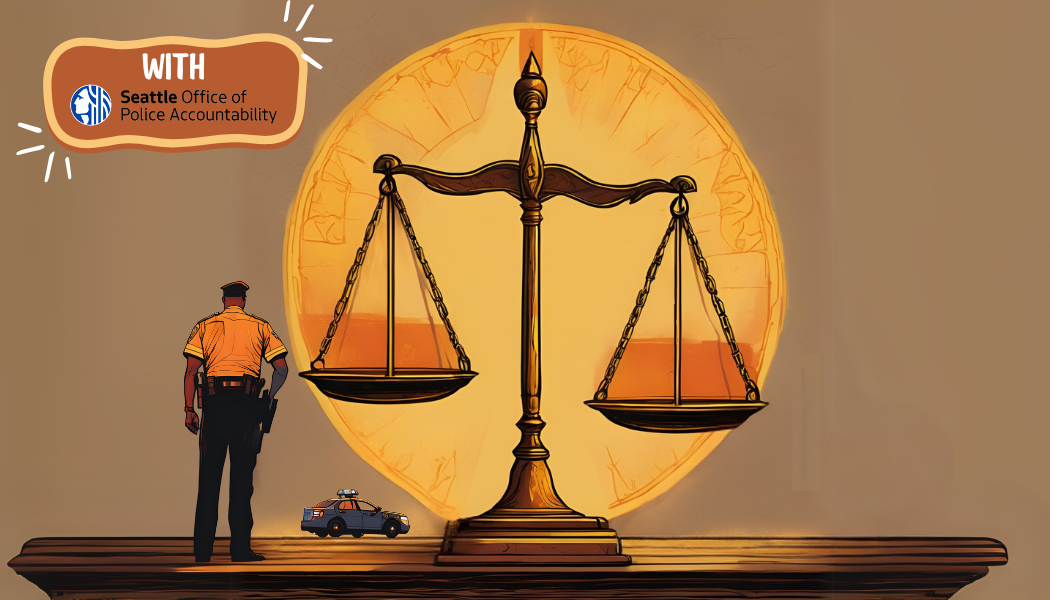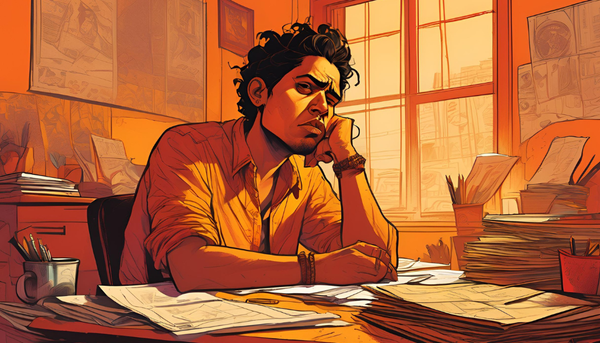
Do these sentences resonate? 👇
- "I saw a police officer do something that seemed wrong, but I wasn't sure if it was actually against the rules."
- "I want to see change in my community, but I don't know how to make a difference."
- "I'm hesitant to report police misconduct because I don't trust the system to be fair and impartial."
If so, you're not alone. The world of police accountability can feel like a bit of a black box. But guess what? You do have a voice, and it matters more than you might think.
The murder of George Floyd in 2020 sparked a massive movement demanding more oversight and accountability for law enforcement. From calls to defund the police to full-on abolition movements, our nation demanded change like never before. Five years later, what systems are in place today? And with all the upheaval happening at the federal level – changes to DEI initiatives, immigration policies, education, and more (don't worry, we'll dig into those in future articles) – what's the current state of police accountability?
To break it all down, I had an amazing conversation with Geneva Taylor (she/her), Community Engagement Manager and Restorative Justice Specialist, and Katie Maier (she/her), Assistant Director of Operations, at the Seattle Office of Police Accountability (OPA). They gave me the inside scoop on how the whole system works, from filing a complaint to the investigation process and beyond.
(Psst... If you're outside of Seattle, check your local city's website for info on their police accountability system. Try searching "[Your City] + police oversight" or "[Your City] + police review board." It also may be called something different, like the Citizen Review Board or the Office of the Inspector General.)

"Unless you've read the whole handbook and know what officers can do and not do, sometimes you're unaware of what rules or policies people are following." – Geneva Taylor
What is OPA?
OPA is an independent office within the Seattle Police Department (SPD) that investigates complaints of misconduct against SPD employees. This includes both sworn officers and civilian staff.
"OPA is really an independent office," Geneva explains. "We don't follow the hierarchy of SPD. We don't answer to the Chief of Police."
This independence is key to keeping things fair and impartial. As Katie puts it, "All of our decision-making points are done by civilian staff." This means that when you file a complaint, it's reviewed by people just like you, not just by other police officers.
Okay, I want to file a aomplaint. How does that work?
Good news: filing a complaint is actually pretty easy. You have a few options:
- Online: Head to OPA's website and submit a complaint, anonymously or with your info.
- Phone: "They call our office and make complaints," says Geneva. You can also choose to remain anonymous this way.
- Email: "They send in emails," Geneva confirms. Pro Tip: The more info you can give them, the better. Think dates, times, locations, officer descriptions, and witness info.
- In-person: "They come up to the office and make complaints," says Geneva.
- Through an SPD officer: If something happens right then and there, you can ask an officer or sergeant to file a complaint on your behalf. Katie explains, "You have every right to say, 'I want this to go to OPA. I want a sergeant or supervisor to come to the scene.'"
What happens after I file a complaint?
Geneva explains that every complaint goes through a "daily intake process," where a team reviews the information and decides how to handle it. "They do not all go into investigations," she clarifies. Some might be resolved through:
- Mediation: This means sitting down with the employee and a neutral third party to talk things through. Katie describes it as a chance to "share that experience and have that conversation on a different level."
- Supervisory action: The employee's supervisor steps in to address the misconduct with things like guidance or training.
- Referral to other resources: Sometimes, OPA may redirect you if your case falls into another office’s support.
If your complaint does lead to a full investigation, OPA investigators will gather evidence like body-worn camera footage, witness statements, and interviews. Katie explains that they "look at body-worn cam, we interview people, we interview the person who has made a complaint, witnesses, all of those things." Then, according to the Accountability Ordinance, the civilian OPA Director will review everything and decide if the misconduct is "sustained" (meaning it more likely than not happened) or "not sustained."
What are the possible outcomes of an investigation?
Katie breaks down the possible outcomes:
- Sustained finding: The employee might face consequences, which could be anything from an oral reprimand to getting fired (termination).
- Not sustained finding: The case is closed, and no further action is taken.
- Training referral: The employee might have to go through some extra training.
- Management action recommendation: OPA might suggest changes to SPD policy or practice to prevent similar things from happening again.
How does OPA keep things transparent?
OPA is committed to transparency. Here's how they do it:
- Closed case summaries: You can find summaries of all their closed investigations online.
- Annual report: Every year, they publish a report packed with data about complaints, demographics, and outcomes.
- Public records requests: You can submit a public records request to get more info about a specific case or how OPA operates.
What does the data tell us?
Here are some interesting tidbits from their report published in 2024:
- They were BUSY: OPA received a whopping 3,417 contacts in 2023. That's a lot of inquiries to handle!
- It's not just who you think: The majority of complainants were white men (52%). This reminds us that police misconduct can affect anyone.
- Most officers are willing to talk: A surprising 95% of SPD employees named in complaints agreed to participate in mediation. This shows that many officers are open to having a conversation and resolving things peacefully.
If anything happens, it can be hard to navigate those next steps. Fear, shame, and more are all expected when challenging power dynamics, and historically detrimental systems for people of color are at play. Hopefully, this information gives us more confidence that OPA is a resource that hears out a case dutifully and works to serve in our best interest.

"If we really want to see change... it is hard, but sitting at that table together is what makes those lasting changes." – Katie Maier
In 2023, OPA offered four mediations, one of which was accepted (2023 Annual Report, Pub. June 2024, Seattle Office of Police Accountability).
Explore how this topic shows up for you.
- When have YOU felt empowered to speak up against injustice?
- What does accountability look like to YOU (in YOUr own life or in YOUr community)?
- How can YOU contribute to a culture of transparency and accountability, both in YOUr personal relationships and in YOUr community?
- What are YOUr biggest concerns about policing in YOUr community, and what solutions or changes would YOU like to see?
- How can YOU use YOUr voice and YOUr actions to advocate for a more just and equitable system for everyone?

"They're not being forced to come here, which I think is unique and helpful to know that people are opting in saying, 'I want to be a part of this system.'" – Katie Maier
How can I get involved?
Do one of these things TODAY (helpful links, too!)👇
- Request a presentation: Geneva encourages you to "invite us and have us come to different groups that you're involved in."
- Stay in the loop: Follow OPA on social media (Facebook, Instagram, LinkedIn), and check out their website to attend community events.
- Get artsy: Submit your artwork to their annual art contest. (Check out the details here!) Artwork is due to OPA by April 2, 2025.
Reach out 👇
Although so many changes are happening on a federal level, OPA does not anticipate any changes happening to OPA at this time. "We are not making any changes [to our process]. We are continuing with our mission, our body of work. SPD is committed to this and being good partners.”
The Office of Inspector General (auditor) and the Community Police Commission (CPC) (Community input and Commission) would also ben involved in any changes to the organization. It is comforting that we can continue to rely on the OPA amid everything else going on right now.
Parting inspiration 👇
- "Why not me?" – Geneva Taylor
- "Once we have knowledge and information, it's our responsibility to change the world." – Katie Maier
Some vibes to close us out
Holding structures of power accountable? It's still here, and it continues to be as important as ever.
Your voice matters, your experiences are valid, and you have the power to hold law enforcement accountable.
Whether you file a complaint, participate in mediation, support OPA's work, or simply start a conversation about police accountability in your community, there are so many ways to get involved.
Find what sparks your passion and take action.
YOU got this. 💭✨
Sources
- "2023 Annual Report." Office of Police Accountability (2024).

Dig into this topic deeper by signing up for our FREE newsletter.
You'll be able to download the reflection worksheet to put all these actions into one page.
Once you're in, come back to this page and download your new go-to resource.
Hey rYOUminators!
As a valued subscriber, you get a bonus piece to this article: a worksheet!
Download below and ruminate your heart away!





